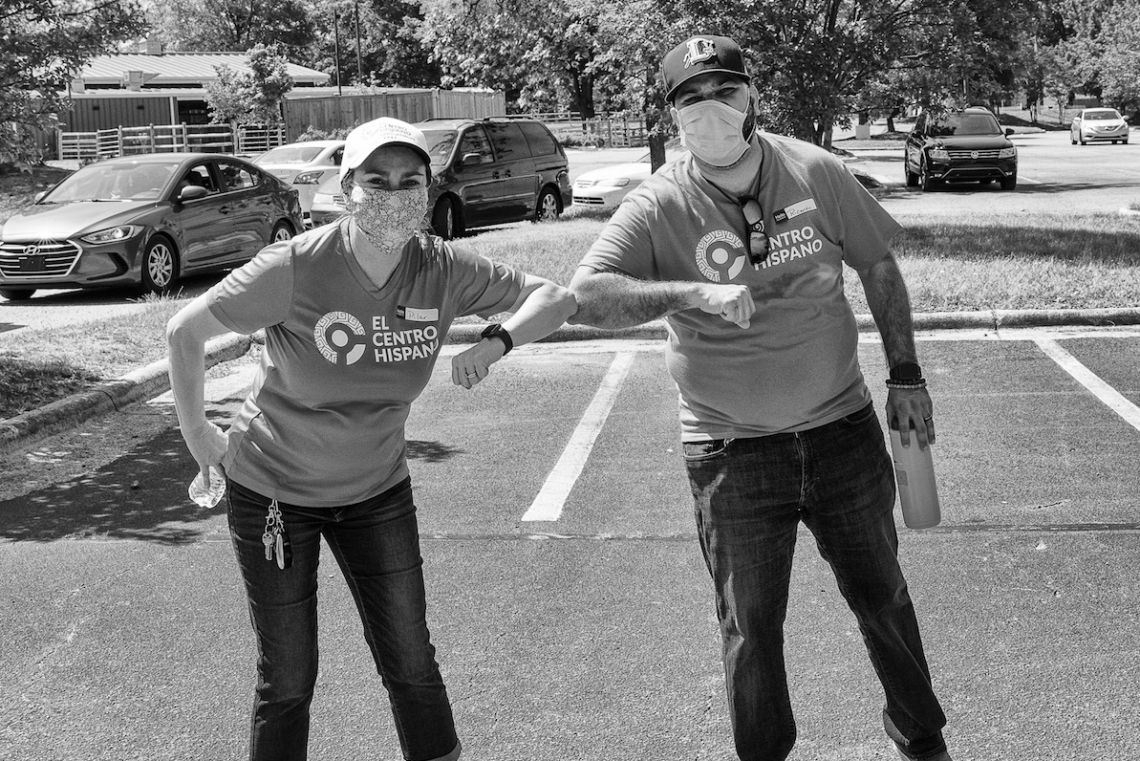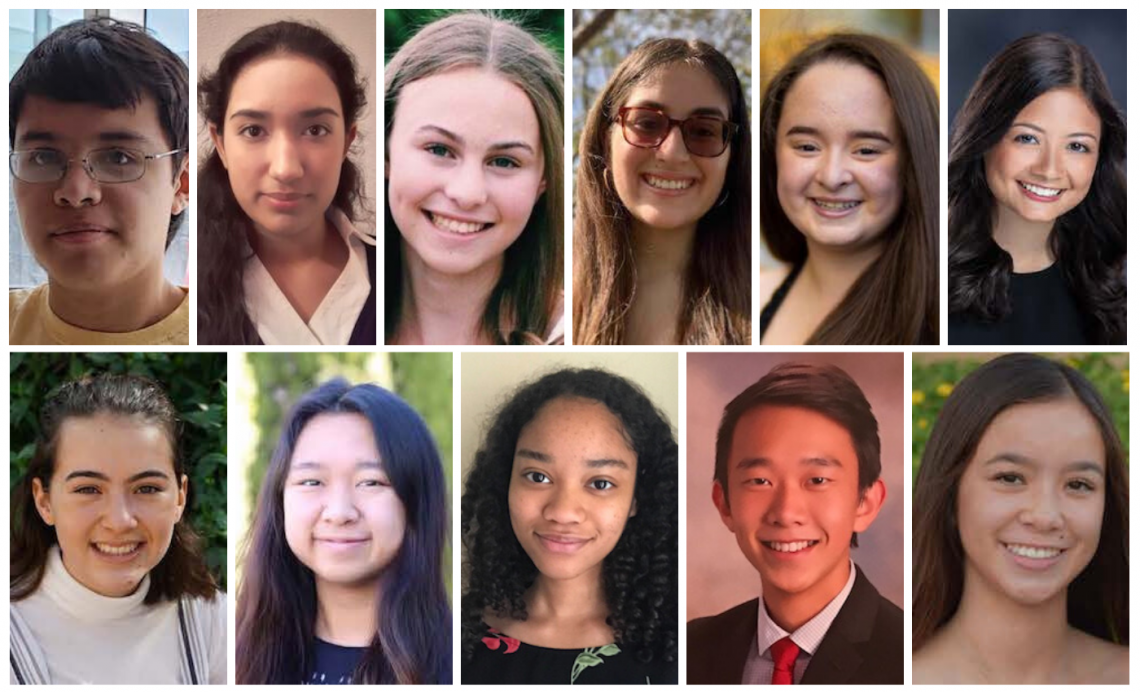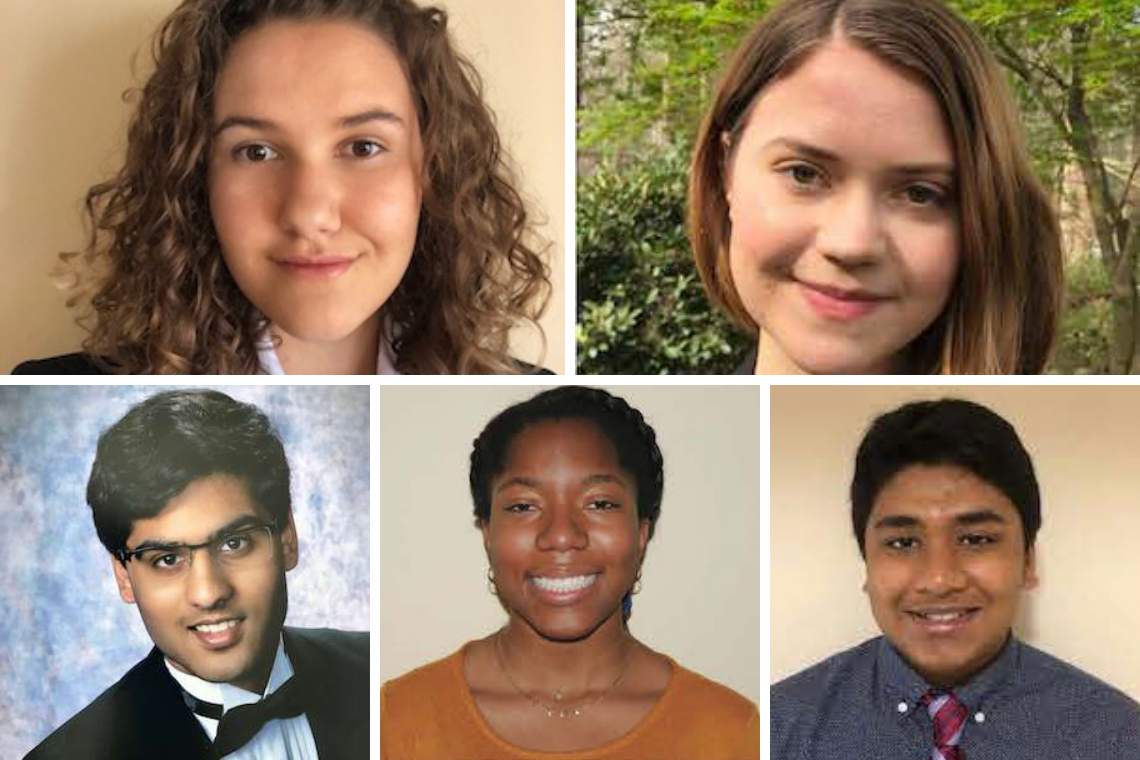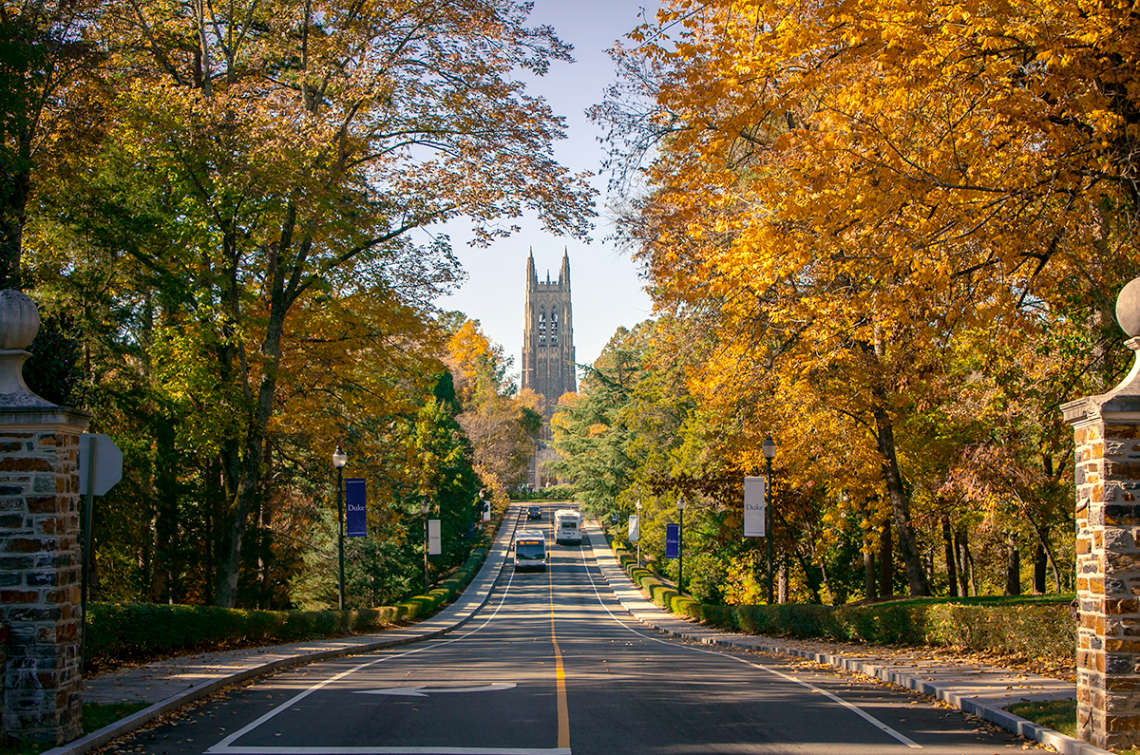In April, Duke President Vincent E. Price announced a $5 million expansion of the Duke-Durham Fund to provide financial support and technical assistance to non-profits, small businesses and community-based organizations affected by the pandemic.
"Neighbors help neighbors during times of trouble, and that is exactly what these funds are designed to do," said Stelfanie Williams, vice president for Durham and Community Affairs, whose office oversees the grants. “We could not accomplish Duke’s critical health care and academic mission without these purposeful partnerships in our community."
Williams noted that most of the funded organizations are long-time partners in the community helping to serve Duke’s mission to improve quality of life and address social determinants of health.
Community Partner Impacts
After receiving an initial grant from the emergency relief fund, the YMCA of the Triangle was able to offer urgent childcare to 40 front-line health care families during the stay-at-home order. A second grant to the YMCA from the corporate partnership fund in June will provide traditional summer camp to 75-100 low-income kindergarten through eighth graders in Durham, including snacks and academic help by certified teachers to make up for learning losses during the COVID-19 school shut-down. Those interested in the YMCA's summer opportunities in Durham should contact the YMCA directly.
Another group receiving emergency relief and corporate partnership grants is the Durham Public Schools (DPS) Foundation. Duke has a long-standing partnership with DPS and was an early supporter of the foundation which was launched in 2018. This grant allows them to continue to feed public school children that rely on school meals for access to nutrition.
“With this generous support from the Duke-Durham Fund, the DPS Foundation will be able to continue partnering with local restaurants to provide a week's worth of food to over 1,000 children and their families through contactless delivery to their homes all of June and July," said foundation executive director Magan Gonzalez-Smith.
El Centro Hispano also received two grants to continue their work to support Durham’s Latinx population. “As soon as the pandemic started people in the community were asking for food,” said executive director Pilar Rocha-Goldberg. That was not typical for the organization, she said, so they started raising funds to shift focus to the community’s immediate needs. Rocha-Goldberg said the first small grant helped feed 30-40 families per week along with masks and coronavirus testing. El Centro plans to use a second grant to address the growing need for utility and rent assistance while people are out of work.
The grants were made in several phases to quickly support the community’s most vulnerable populations during the pandemic.
Emergency Relief for the Community
Of Duke's $5 million COVID-19 community commitment, $1 million is allocated to small grants up to $5,000 for nonprofits and community organizations. Another $55,000 in community raised funding is available. In the first round, Duke received 144 applications and 82 were funded for a total of more than $350,000. Projects must address immediate, basic needs of food, shelter and childcare for those affected by COVID-19. This grant category is now accepting round two and three applications through June 9. Groups can apply for the remaining two rounds to provide rapid relief for maximum impact.
Corporate Partnership to Support Nonprofits
This category is a business-led campaign to make critical resources available to Durham’s vulnerable communities. It brings together corporations including A.J. Fletcher Foundation, Bank of America, Biogen, BD, Burt's Bees, Cisco Systems, Inc., Coastal Credit Union, NetApp, Research Triangle Foundation, RTI International and Wells Fargo, along with Duke University, local government and community leaders to identify and respond to the community’s acute needs.
“Like everyone else, Burt’s Bees and the other businesses involved in this effort were shocked by the pace and the severity of the impact of the pandemic,” said Matt Kopac, manager of sustainable business and innovation at Burt’s Bees and chair of the review committee for this category. “We were also inspired by local, heroic initiatives being mounted by grassroots organizations in Durham. After talking with Mayor Steve Schewel, County Commission Board Chair Wendy Jacobs, Board of Education Chair Mike Lee and our contacts with Duke University, we determined that a collective response by Durham businesses could make a significant contribution to relief efforts.”
This fund received 48 applications and made grants to 31 nonprofit organizations for a total of approximately $1.4 million, representing $1 million from Duke and $400,000 from corporate partners.
Emergency Relief to Carteret County
Carteret County is home to the Duke University Marine Lab campus, a teaching and research facility in Beaufort that is part of the Nicholas School of the Environment. Applications for a handful of small grants up to $5,000 are open to Carteret community organizations through June 8.
“Carteret County is our home – and we rely on our neighbors to conduct our missions of research, conservation, and education,” said Marine Lab director, Andy Read. “Many people in our community are still struggling from the effects of hurricanes Florence and Dorian, and COVID19 has created additional economic and social distress, so we hope that this program will help folks here in need during this very difficult time.”
Small Business Support
Duke plans to partner with local government to provide resources and assistance to Durham small businesses.
For more information on all Duke COVID-19 emergency response grants, please email duke-durham-fund@duke.edu or visit community.duke.edu/give.
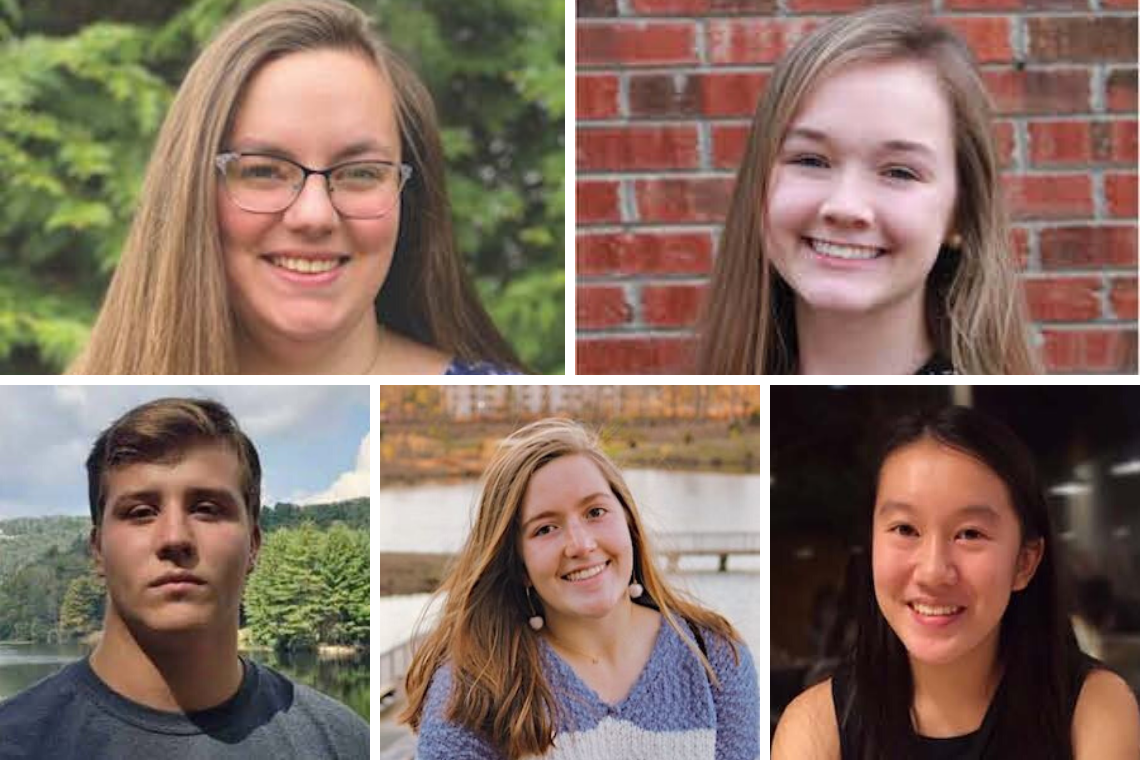
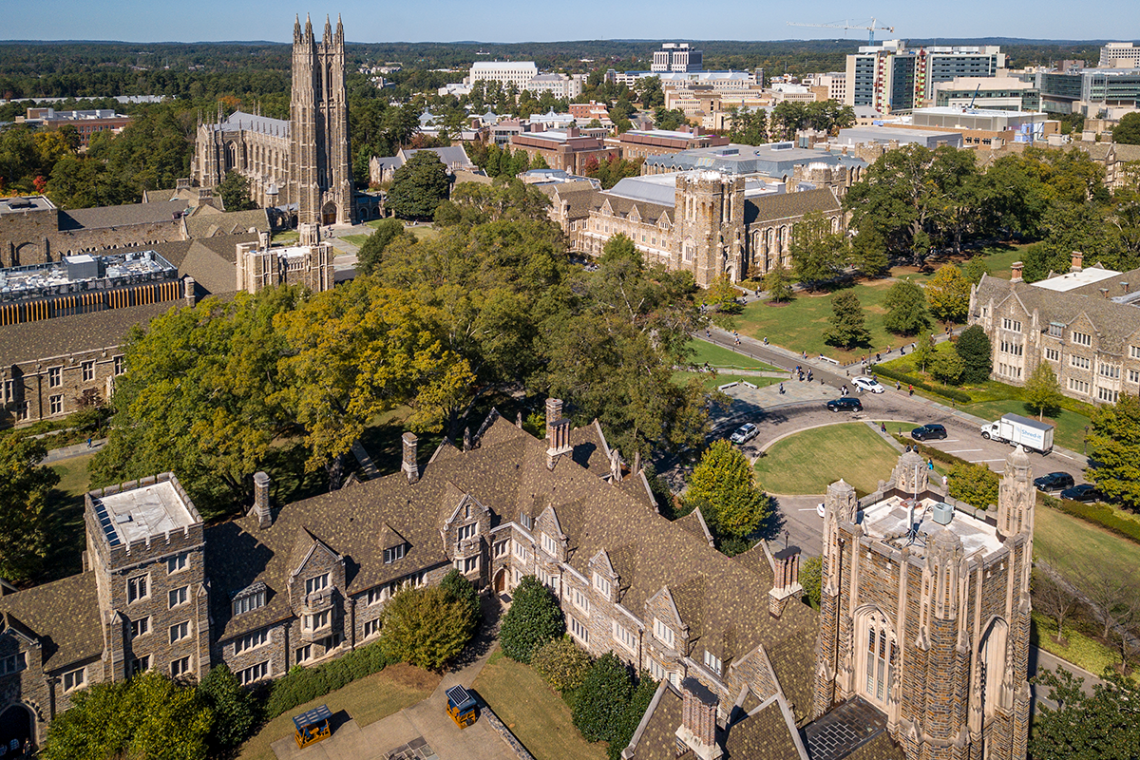
 In the aftermath of the killing of George Floyd, a black man, by Minneapolis police, it was a week in which many Duke faculty, staff and students went into their communities to raise voices and seek solutions to deep issues of institutional racism in this country.
In the aftermath of the killing of George Floyd, a black man, by Minneapolis police, it was a week in which many Duke faculty, staff and students went into their communities to raise voices and seek solutions to deep issues of institutional racism in this country.




